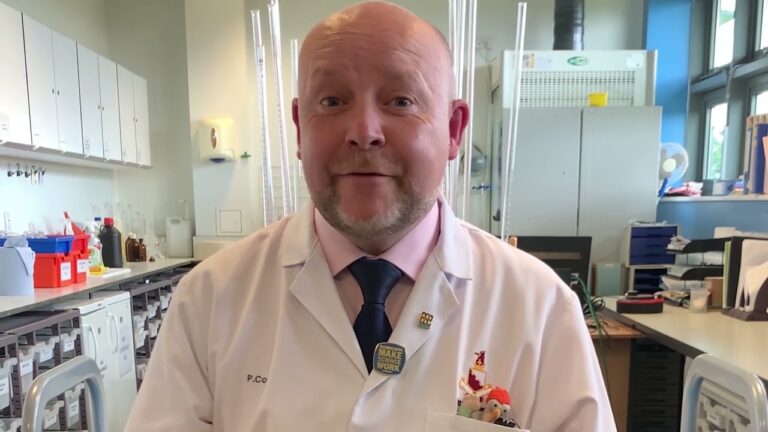Explore the Role of a Primary Care Physician: Job Description and Salary!

Primary Care Physician Job Description Template
Primary Care Physician Job Description A primary care physician is a medical professional who serves as the first point of contact for patients seeking medical care. They play a crucial role in providing comprehensive and continuous healthcare to individuals of all ages, genders, and backgrounds. The responsibilities of a primary care physician include diagnosing and treating various medical conditions, managing chronic illnesses, and promoting preventive care. They conduct physical examinations, order diagnostic tests, prescribe medications, and develop treatment plans tailored to each patient’s needs. Additionally, they provide counseling on lifestyle modifications, such as diet and exercise, to promote overall wellness. Two important qualities that a primary care physician should possess are compassion and communication skills. Compassion is essential for building trust and establishing a rapport with patients, as it allows physicians to empathize with their concerns and provide emotional support. Effective communication skills are necessary to clearly explain medical conditions, treatment options, and preventive measures to patients, ensuring they understand and actively participate in their healthcare decisions. Furthermore, primary care physicians collaborate with other healthcare professionals, such as specialists, nurses, and pharmacists, to coordinate patient care and provide holistic treatment. They also stay updated with the latest medical advancements and research to deliver evidence-based care. In summary, a primary care physician is a vital healthcare provider who offers comprehensive medical services, emphasizing preventive care and long-term patient well-being. Their roles encompass diagnosis, treatment, and management of various medical conditions, while maintaining effective communication and compassion towards patients.Primary Care Physician Responsibilities
Primary Care Physician Requirements
How Much Does A Primary Care Physician Make?
Primary Care Physician Salary
| City | State | Salary |
|---|---|---|
| New York City | New York | $216,090 |
| Los Angeles | California | $229,390 |
| Chicago | Illinois | $215,000 |
| Houston | Texas | $212,830 |
| Philadelphia | Pennsylvania | $218,760 |
A primary care physician, also known as a general practitioner, is a medical doctor who provides initial and ongoing care for patients with a wide range of medical conditions. The salary of a primary care physician can vary depending on factors such as location, experience, and specialty. The table above showcases the average salaries of primary care physicians in different cities across the United States. It is important to note that these figures are approximate and can fluctuate over time. Primary care physicians play a crucial role in the healthcare system by promoting preventive care, managing chronic conditions, and coordinating overall patient care.
Primary Care Physician Salaries by Country
Top Paying Countries for Primary Care Physician
| Country | Average Salary (USD) |
|---|---|
| United States | $218,173 |
| Switzerland | $174,310 |
| Australia | $163,445 |
| Netherlands | $149,000 |
| Belgium | $131,500 |
Primary care physicians in different countries earn varying salaries. The top paying countries for primary care physicians are listed in the table above. The United States has the highest average salary for primary care physicians, with an average of $218,173 per year. Switzerland, Australia, Netherlands, and Belgium also offer high salaries for primary care physicians. It is important to note that these figures represent average salaries and can vary based on factors such as experience, location, and specialization. Salaries may also be influenced by the healthcare system and cost of living in each country.
A video on the topic Primary Care Physician
Video Source : Doctor MikeInterview Questions for Primary Care Physician
1. Can you briefly describe your background and experience as a primary care physician?
I have been working as a primary care physician for the past 10 years. I completed my medical degree and residency training in internal medicine, which provided me with a solid foundation in managing various health conditions. Throughout my career, I have gained experience in diagnosing and treating a wide range of illnesses, providing preventive care, and promoting overall wellness.
2. What do you consider to be the most important qualities for a primary care physician to possess?
I believe compassion, empathy, and good communication skills are essential qualities for a primary care physician. It is important to establish a strong rapport with patients, actively listen to their concerns, and provide them with personalized care. Additionally, being detail-oriented, having strong problem-solving abilities, and staying updated with the latest medical advancements are crucial for delivering high-quality healthcare.
3. How do you approach preventive care and patient education?
I strongly believe in the power of preventive care and patient education. I emphasize the importance of regular check-ups, screenings, and vaccinations to prevent diseases or detect them at an early stage. During patient visits, I take the time to educate individuals about healthy lifestyle choices, disease prevention measures, and the management of chronic conditions. I also provide resources and information to empower patients to take control of their own health.
4. How do you handle challenging or difficult patients?
Dealing with challenging or difficult patients can be demanding, but I always strive to maintain a patient-centered approach. I listen attentively to their concerns, validate their feelings, and try to understand their perspective. By showing empathy and respect, I aim to establish trust and open communication. If necessary, I may involve a multidisciplinary team or seek additional resources to address the patient’s needs effectively.
5. How do you stay updated with the latest medical advancements and research?
Continuing medical education is crucial to providing the best possible care to my patients. I regularly attend conferences, workshops, and seminars to stay updated with the latest medical advancements and research. I also participate in online forums and subscribe to reputable medical journals. Additionally, I engage in peer discussions and collaborate with other healthcare professionals to exchange knowledge and stay informed about new treatment options.
6. How do you ensure patient confidentiality and privacy?
Patient confidentiality and privacy are of utmost importance in healthcare. I strictly adhere to the ethical and legal guidelines set by the medical profession. I ensure that patient records are securely stored and only accessible to authorized individuals involved in the patient’s care. I also educate my staff about the importance of confidentiality and regularly review and update our privacy policies to maintain compliance with relevant laws and regulations.
7. How do you approach collaborative care with specialists and other healthcare professionals?
I strongly believe in the benefits of collaborative care. When necessary, I collaborate closely with specialists and other healthcare professionals to provide comprehensive and coordinated care for my patients. I communicate effectively with these professionals, share relevant patient information, and actively participate in interdisciplinary meetings and discussions. By working as a team, we can ensure the best outcomes for our patients.
8. How do you handle a situation where a patient’s symptoms are unclear or challenging to diagnose?
In situations where a patient’s symptoms are unclear or challenging to diagnose, I approach the case with a systematic and comprehensive approach. I gather a detailed medical history, perform a thorough physical examination, and order any necessary diagnostic tests. If needed, I may consult with specialists or refer the patient to a specialized facility for further evaluation. I also make sure to communicate with the patient throughout the process, explaining the steps taken and involving them in the decision-making process.
9. How do you prioritize your time and manage a busy schedule?
Time management is essential when dealing with a busy schedule. I prioritize patient appointments based on urgency and medical necessity. I allocate sufficient time for each visit to ensure thorough assessments and discussions. I also make use of electronic medical records and other technology to streamline administrative tasks and reduce paperwork, allowing me to focus more on patient care. Additionally, I delegate tasks to my support staff when appropriate, ensuring efficient workflow.
10. What do you find most rewarding about being a primary care physician?
The most rewarding aspect of being a primary care physician is the opportunity to make a positive impact on my patients’ lives. Building long-term relationships with patients, being their trusted healthcare advocate, and witnessing their health improvements are incredibly fulfilling. It is a privilege to be involved in their healthcare journey, providing support, guidance, and compassionate care along the way.






